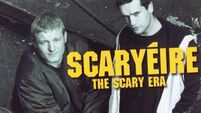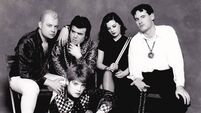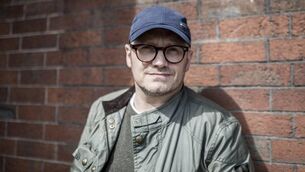Ireland in 50 Albums, No 9: 'If This Is Rock and Roll...', by The Saw Doctors

The Saw Doctors picture from the back cover image of the debut album, If This Is Rock and Roll, I Want My Old Job Back. (1991). From left: Pearse Doherty, John 'Turps’ Burke, John Donnelly, Davy Carton and Leo Moran. Picture: Frank Miller
The first Féile concert was held on the August bank holiday weekend in 1990. The Saw Doctors headed to the venue at Semple Stadium in Thurles more in hope than expectation. Earlier that year their debut single, 'N17', had sold only 150 copies on release. At the Co Tipperary event, they helped to check wristbands on festivalgoers at the turnstiles over the weekend. Their slot was early on Sunday, the third day of the festival.
“We were on the same time as mass – at 12 o’clock in the day,” says Davy Carton, the band’s lead singer. “We heard the same day that our new single 'I Useta Lover' had gone into number 19 in the charts. We couldn't believe it. In the next couple of months, history was made because it crawled up the charts and went to number one, and it stayed at number one for nine weeks.







